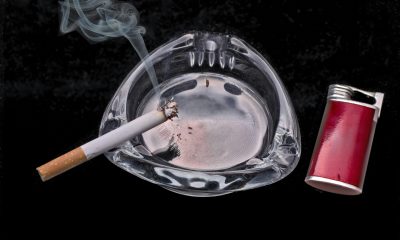Frontpage
# Thái Lan: Sức khỏe không tốt của nhà vua Thái Lan làm tăng thêm bất ổn chính trị trước cuộc trưng cầu dân ý sắp tới

 The health of Thailand’s 88-year-old king is being watched closely in a country that is suffering increased political divisions and violence. King Bhumibol Adulyadej became the world’s longest serving monarch when he celebrated 70 years of his reign on Thursday (9 June), writes Martin Banks.
The health of Thailand’s 88-year-old king is being watched closely in a country that is suffering increased political divisions and violence. King Bhumibol Adulyadej became the world’s longest serving monarch when he celebrated 70 years of his reign on Thursday (9 June), writes Martin Banks.
But the king has just undergone major heart surgery and this has raised fears about his and the royal family’s continued ability to continue as arbiter in the country’s divided political arena.
Political and social stability in Thailand is already seen as being precarious leading up to a key referendum on the draft constitution on 7 August. King Bhumibol has been hospitalized for much of the past decade due to various ailments and his health is being closely monitored as it is a matter of national concern due to public uncertainty over political stability during the succession.
Critics of Thailand’s ruling military junta say the crackdown on free expression sows doubts about the regime’s intention to hold a free vote on the August referendum followed by national elections next year.
There has even been speculation in some quarters that the referendum will not happen although Thai Election Commissioner Somchai Srisutthiyakorn insists it will go ahead as planned even if the Constitutional Court rules against a particular clause of the referendum law. A new poll shows that conflict stemming from a refusal to accept the results of the referendum is the biggest worry among the public ahead of the vote. The Suan Dusit university survey found 74.7% of respondents said the issue was their biggest concern as the referendum nears.
This was exacerbated when the military regime last month indicated the general election scheduled for next year may have to be scrapped if the draft constitution is shot down in the referendum. Prime Minister Prayut Chan-o-cha indicated that if the draft charter fails to pass the referendum he would have to stay on to make sure there was a new constitution and a general election. He did not give a time frame.
In the event the draft charter prepared by the junta-appointed Constitution Drafting Committee is voted down in the referendum, the prime minister will use his power as the chief of the National Council for Peace and Order (NCPO) to set up a new committee to draw up a new charter, his deputy Gen Prawit said. Asked whether there would be a general election by September 2017, Gen Prawit declined to answer directly, only saying: "We will try to follow the existing roadmap.”
The referendum amounts to the first measurement of public sentiment toward the military junta but the exercise will be far from free and fair – campaigning for or against the draft is subject to nebulous rules that could land activists in prison for up to ten years. Even the sale of a “Vote No” T shirt is considered against the law.
Prayuth has suggested the junta will press ahead with its plans regardless of the outcome, suggesting that if the draft is rejected, a replacement will be enacted without a popular vote. In any case, a rejection would deeply undercut the legitimacy the junta has claimed for itself. Potential royal succession is also complicating the political climate with the king’s succession prompting worries about instability in a country that has witnessed 19 coups or attempted ones and at least 19 constitutions since a constitutional monarchy replaced an absolute one in 1932.
The military has overseen the drafting of a constitution to replace one it discarded after seizing power. Critics, including major political parties, say it will enshrine the military's influence and is unlikely to end political strife. The charter would have an appointed upper house Senate, with a portion of the seats reserved for the military and police.
The junta which overthrew a democratically elected government in May 2014 has launched an unprecedented crackdown on anything construed as criticism of the monarchy. The authorities have brought at least 59 lese majeste cases since the coup, according to Human Rights Watch.
A recent report to the UN Human Rights Council by the Asian Legal Resource Centre raised concerns about unfair trials in Thai military courts saying that between 22 May 2014 and 30 September 2015, at least 1,408 cases and 1,629 civilians were prosecuted in such courts located throughout Thailand, including 208 people in Bangkok alone.
Chia sẻ bài viết này:
-

 Thuốc lá5 ngày trước
Thuốc lá5 ngày trướcTại sao chính sách của EU về kiểm soát thuốc lá không hiệu quả
-

 Trung Đông5 ngày trước
Trung Đông5 ngày trướcPhản ứng của EU trước cuộc tấn công tên lửa của Israel vào Iran đi kèm với cảnh báo về Gaza
-

 Kazakhstan4 ngày trước
Kazakhstan4 ngày trướcHành trình của Kazakhstan từ Bên nhận viện trợ đến Nhà tài trợ: Hỗ trợ phát triển của Kazakhstan góp phần đảm bảo an ninh khu vực như thế nào
-

 Moldova2 ngày trước
Moldova2 ngày trướcCựu Bộ Tư pháp Hoa Kỳ và các quan chức FBI phủ nhận vụ án chống lại Ilan Shor























